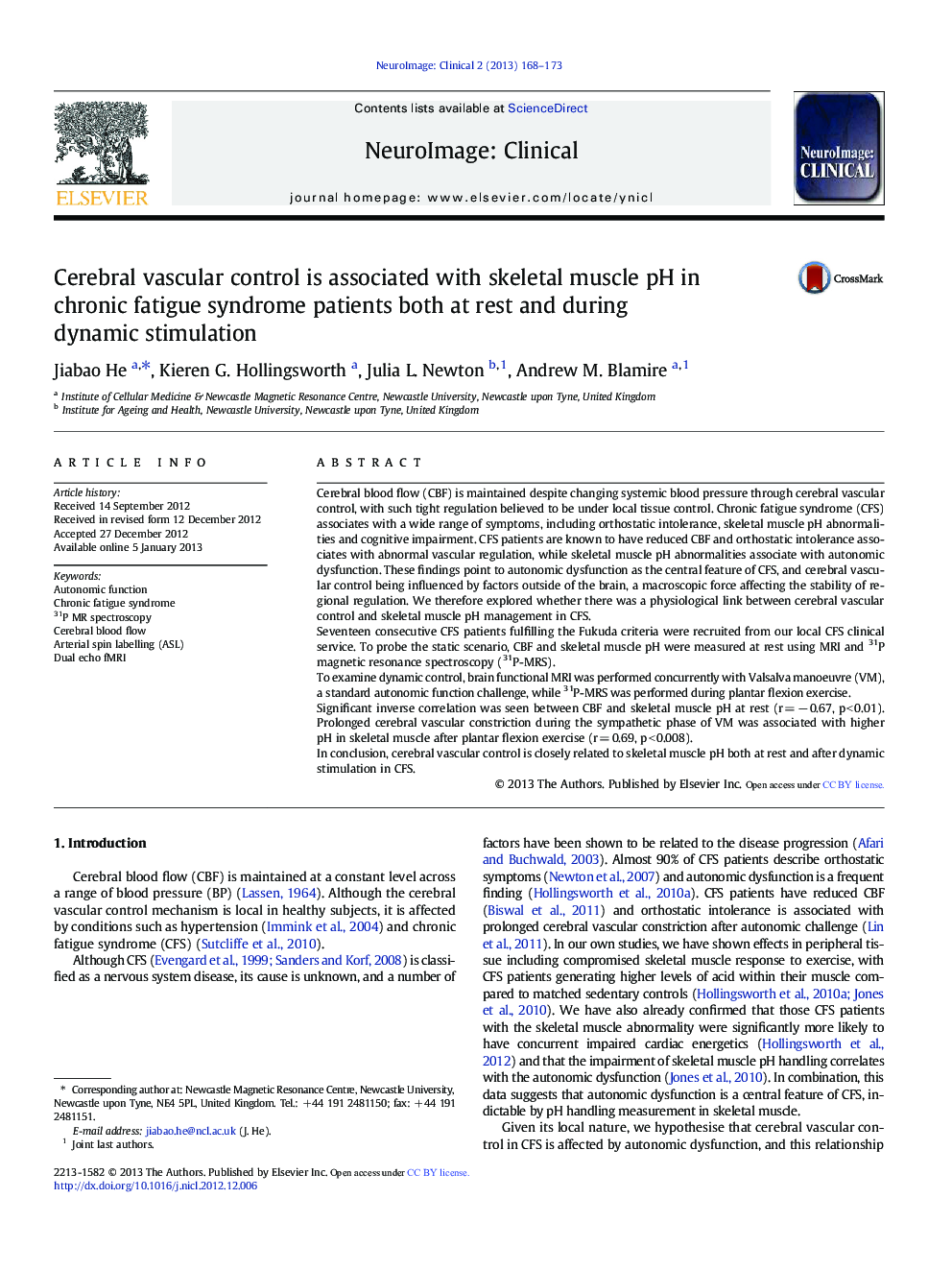| Article ID | Journal | Published Year | Pages | File Type |
|---|---|---|---|---|
| 3075500 | NeuroImage: Clinical | 2013 | 6 Pages |
Cerebral blood flow (CBF) is maintained despite changing systemic blood pressure through cerebral vascular control, with such tight regulation believed to be under local tissue control. Chronic fatigue syndrome (CFS) associates with a wide range of symptoms, including orthostatic intolerance, skeletal muscle pH abnormalities and cognitive impairment. CFS patients are known to have reduced CBF and orthostatic intolerance associates with abnormal vascular regulation, while skeletal muscle pH abnormalities associate with autonomic dysfunction. These findings point to autonomic dysfunction as the central feature of CFS, and cerebral vascular control being influenced by factors outside of the brain, a macroscopic force affecting the stability of regional regulation. We therefore explored whether there was a physiological link between cerebral vascular control and skeletal muscle pH management in CFS.Seventeen consecutive CFS patients fulfilling the Fukuda criteria were recruited from our local CFS clinical service. To probe the static scenario, CBF and skeletal muscle pH were measured at rest using MRI and 31P magnetic resonance spectroscopy (31P-MRS).To examine dynamic control, brain functional MRI was performed concurrently with Valsalva manoeuvre (VM), a standard autonomic function challenge, while 31P-MRS was performed during plantar flexion exercise.Significant inverse correlation was seen between CBF and skeletal muscle pH at rest (r = − 0.67, p < 0.01). Prolonged cerebral vascular constriction during the sympathetic phase of VM was associated with higher pH in skeletal muscle after plantar flexion exercise (r = 0.69, p < 0.008).In conclusion, cerebral vascular control is closely related to skeletal muscle pH both at rest and after dynamic stimulation in CFS.
► Cerebral vascular control in CFS is affected by factors external to the brain. ► Valsalva manoeuvre performed during fMRI probes cerebral vascular control. ► Cerebral blood flow is associated with skeletal muscle pH at rest in CFS. ► Cerebral vascular control relates to skeletal pH recovery after stimulation in CFS. ► Our results point towards a peripheral or systemic cause for CFS.
